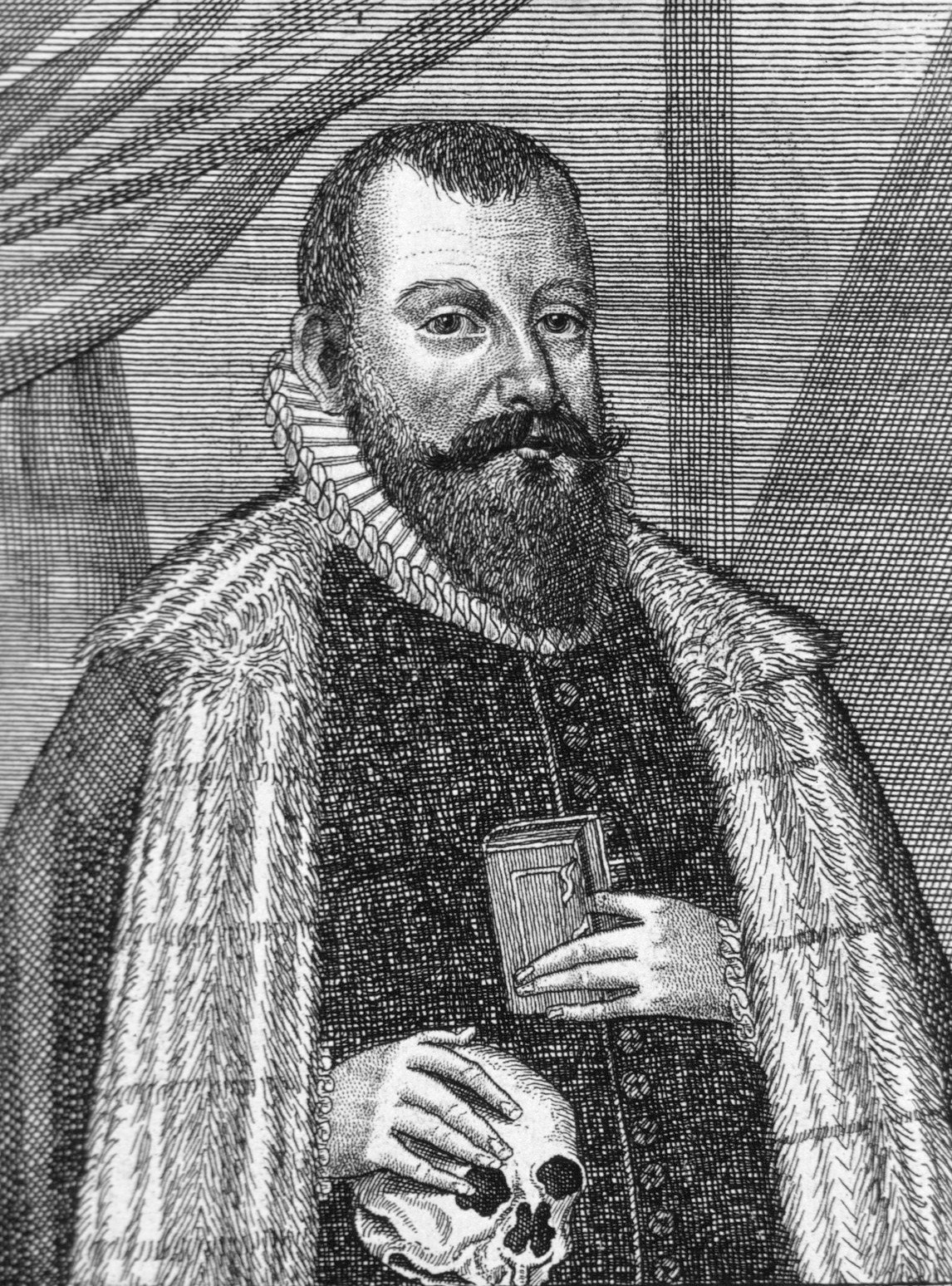Nicolaus Taurellus on:
[Wikipedia]
[Google]
[Amazon]
 Nicolaus Taurellus (Latin, from german: Nikolaus Öchslinin 19th century translated to French as ''Nicolas Tourot''. No Google Books hit befor
Nicolaus Taurellus (Latin, from german: Nikolaus Öchslinin 19th century translated to French as ''Nicolas Tourot''. No Google Books hit befor
1859
/ref>) (November 26, 1547September 28, 1606) was a German
at Herzog August Bibliothek Wolfenbüttel
* ''Philosophiae triumphus seu metaphysica philosophandi methodus''. Basel 1573. * ''Medicae praedictionis methodus''. Frankfurt, 1581. * ''Carmina Funebria, Quae Magnorum Aliquot, Clarorumque virorum felici memoriae dicavit.'' Nürnberg: Lochner, 1602
* ''Emblemata Physico-Ethica, Hoc Est: naturae morum moderatricis picta præcepta''. Nürnberg: Halbmayer, 1617. Mikrofiche-Ausgabe Zug: IDC, 1981. * ''Tavrellvs Defensvs : H. E. Iac. Wilh. Feverlini ... Dissertatio Apologetica Pro Nic. Tavrello ... Atheismi Et Deismi Iniuste Accusato''. Nürnberg: Schmid, 1734.
Literatur von und über Nicolaus Taurellus
im Katalog des SWB, Südwestdeutscher Bibliotheksverbund * * {{DEFAULTSORT:Taurellus, Nicolaus German philosophers 16th-century philosophers German medical researchers 16th-century German physicians 1547 births 1606 deaths 16th-century German writers 16th-century German male writers 17th-century German writers 17th-century German male writers
 Nicolaus Taurellus (Latin, from german: Nikolaus Öchslinin 19th century translated to French as ''Nicolas Tourot''. No Google Books hit befor
Nicolaus Taurellus (Latin, from german: Nikolaus Öchslinin 19th century translated to French as ''Nicolas Tourot''. No Google Books hit befor1859
/ref>) (November 26, 1547September 28, 1606) was a German
philosopher
A philosopher is a person who practices or investigates philosophy. The term ''philosopher'' comes from the grc, φιλόσοφος, , translit=philosophos, meaning 'lover of wisdom'. The coining of the term has been attributed to the Greek th ...
and medical academic.
Life
He was born in theCounty
A county is a geographic region of a country used for administrative or other purposes Chambers Dictionary, L. Brookes (ed.), 2005, Chambers Harrap Publishers Ltd, Edinburgh in certain modern nations. The term is derived from the Old French ...
of Mömpelgard, then part of the Duchy of Württemberg
The Duchy of Württemberg (german: Herzogtum Württemberg) was a duchy located in the south-western part of the Holy Roman Empire. It was a member of the Holy Roman Empire from 1495 to 1806. The dukedom's long survival for over three centuries ...
. With support from Duke Georg I. of Württemberg-Mömpelgard, he read theology at University of Tübingen
The University of Tübingen, officially the Eberhard Karl University of Tübingen (german: Eberhard Karls Universität Tübingen; la, Universitas Eberhardina Carolina), is a public research university located in the city of Tübingen, Baden-W� ...
and medicine at the University of Basel
The University of Basel (Latin: ''Universitas Basiliensis'', German: ''Universität Basel'') is a university in Basel, Switzerland. Founded on 4 April 1460, it is Switzerland's oldest university and among the world's oldest surviving universiti ...
, where he lectured on physical science.
He subsequently became professor of medicine at the University of Altdorf.
There he died in 1606 from the plague, despite treatment by Ernst Soner.
He attacked the dominant Aristotelianism of the time, and endeavoured to construct a philosophy which should harmonize faith and knowledge, and bridge over the chasm made by the first Renaissance writers who followed Pomponazzi
Pietro Pomponazzi (16 September 1462 – 18 May 1525) was an Italian philosopher. He is sometimes known by his Latin name, ''Petrus Pomponatius''.
Biography
Pietro Pomponazzi was born in Mantua and began his education there. He completed h ...
.
Scholasticism
Scholasticism was a medieval school of philosophy that employed a critical organic method of philosophical analysis predicated upon the Aristotelian 10 Categories. Christian scholasticism emerged within the monastic schools that translat ...
he condemned on account of its unquestioning submission to Aristotle.
Taurellus maintained the necessity of going back to Christianity itself, as at once the superstructure and the justification of philosophy.
His chief works were ''Philosophiae Triumphus'' (1573); ''Synopsis Metaphysicae Aristolelis'' (1596); ''De Rerum Aeternitate'' (1604); and a treatise written in criticism of Caesalpinus entitled ''Caesae Alpes'' (1597). See Schmid-Schwarzenburg, ''Nicolaus Taurellus'' (1860 and 1864).
Works
* ''Theses Philosophicae, De Ortu Rationalis Animae''. Nürnberg: Kauffmann, 1596at Herzog August Bibliothek Wolfenbüttel
* ''Philosophiae triumphus seu metaphysica philosophandi methodus''. Basel 1573. * ''Medicae praedictionis methodus''. Frankfurt, 1581. * ''Carmina Funebria, Quae Magnorum Aliquot, Clarorumque virorum felici memoriae dicavit.'' Nürnberg: Lochner, 1602
* ''Emblemata Physico-Ethica, Hoc Est: naturae morum moderatricis picta præcepta''. Nürnberg: Halbmayer, 1617. Mikrofiche-Ausgabe Zug: IDC, 1981. * ''Tavrellvs Defensvs : H. E. Iac. Wilh. Feverlini ... Dissertatio Apologetica Pro Nic. Tavrello ... Atheismi Et Deismi Iniuste Accusato''. Nürnberg: Schmid, 1734.
CD-ROM
A CD-ROM (, compact disc read-only memory) is a type of read-only memory consisting of a pre-pressed optical compact disc that contains data. Computers can read—but not write or erase—CD-ROMs. Some CDs, called enhanced CDs, hold both com ...
-Ausgabe, Mannheim: Univ.-Bibl., 2007 (Zusammen mit Jakob Wilhelm Feuerlein).
Notes
Attribution: *References
* Melchior Adam: ''Vitae Germanorum medicorum qui seculo superiori, et quod excurrit, claruerunt congestae & ad annum usque MDCXX deductae a Melchiore Adamo''. Heidelberg: Rosa, 1620. Mikrofilm-Ausgabe New Haven, Conn.: Research Publications, 1973. * Magnus Daniel Omeis: ''Gloria Academiae Altdorfinae sive Orationum Fasciculus Universitatis Noricae Ortum, Progressum & cuncta Memorabilia, omniumq eProfessorum, qui in quatuor, uti vocant, Facultatibus, a primis eam ornarunt incunabulis, Vitas, Mortes ac Scripta, exhibens''. Altdorf, 1683 * Paul Freher: ''Theatrum virorum eruditione clarorum''. Nürnberg: Hoffmann, 1688, S. 1320 * Konrad Lengenfelder: ''Die Emblemata der Hohen Schule zu Altdorf, in Altnürnberger Landschaft Mitteilungen 26'', 1977, 13–20 * Stefan Folaron: ''Philosophie der Menschenwürde nach Nikolaus Taurellus''. Częstochowa: Wydawn. WSP, 2002.External links
*Literatur von und über Nicolaus Taurellus
im Katalog des SWB, Südwestdeutscher Bibliotheksverbund * * {{DEFAULTSORT:Taurellus, Nicolaus German philosophers 16th-century philosophers German medical researchers 16th-century German physicians 1547 births 1606 deaths 16th-century German writers 16th-century German male writers 17th-century German writers 17th-century German male writers